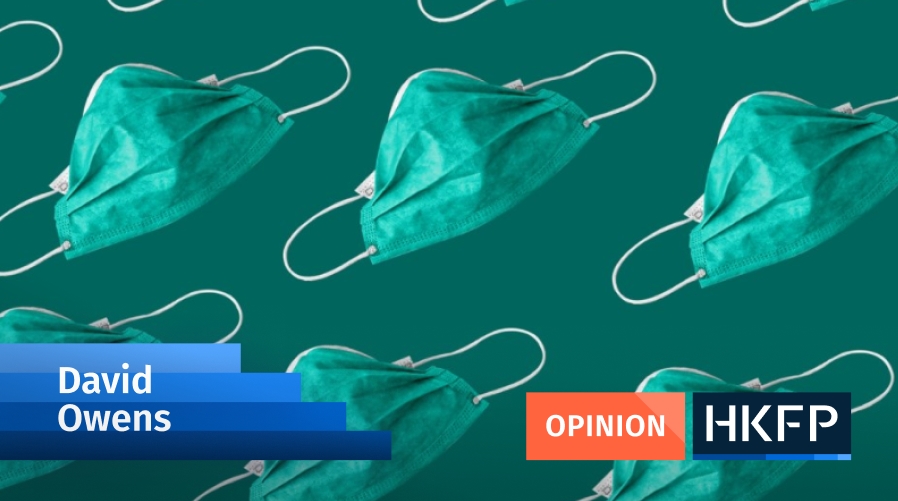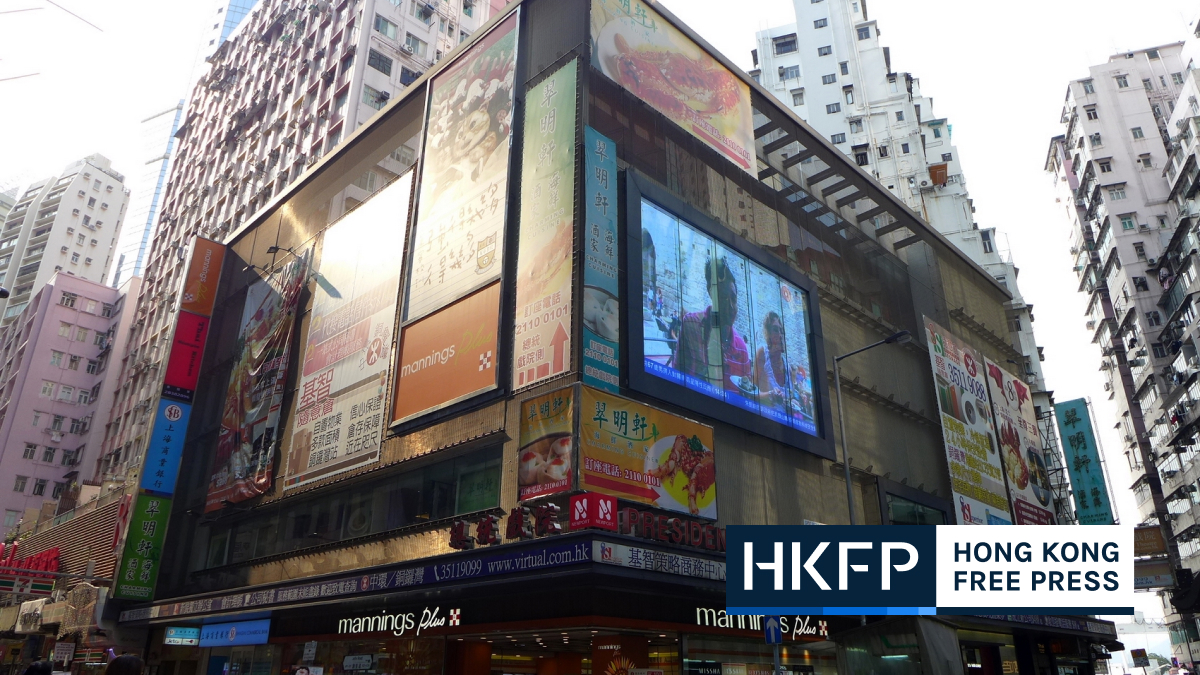A top local health official has admitted that arrivals who were exempted from compulsory quarantine could be the source of Hong Kong’s third – and perhaps most severe – wave of Covid-19, as the city saw 106 new infections on Tuesday.
Speaking on RTHK’s Millennium, Secretary for Food and Health Sophia Chan backed down from her previous stance and admitted there was “empirical evidence” to support experts’ views that the government’s quarantine exemption policy may be behind the recent coronavirus surge.
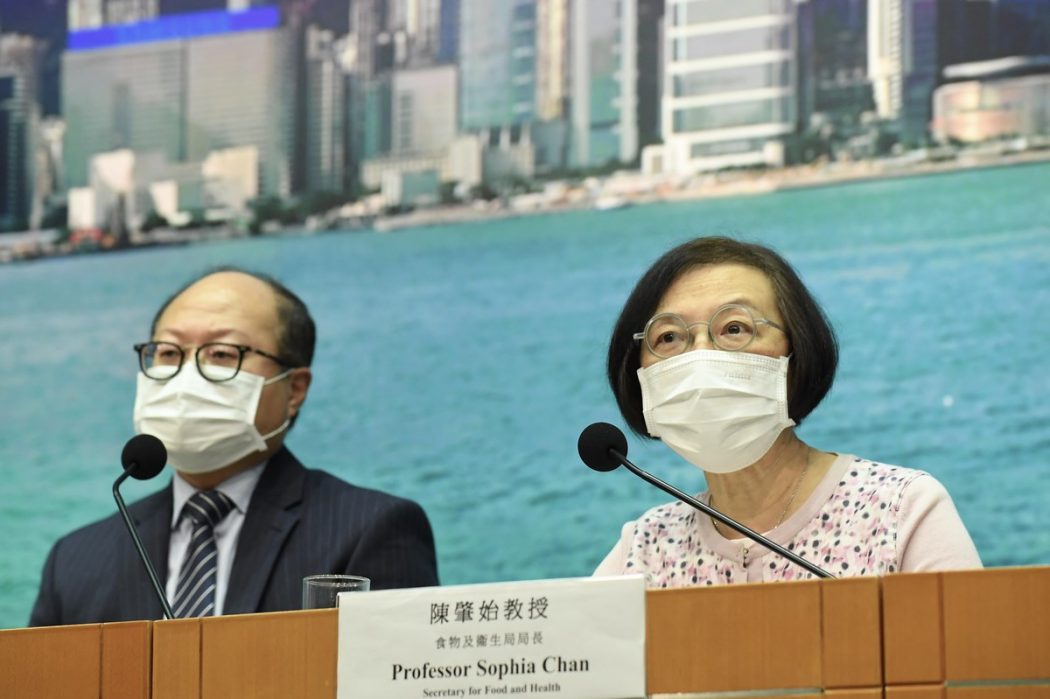
Leading medical experts Yuen Kwok-yung and David Hui have said the government’s policy of exempting 33 types of inbound travellers from the 14-day mandatory quarantine was the “biggest loophole” in battling the new wave of coronavirus.
But the government hit back and said it was a “misunderstanding,” defending the arrangements by arguing they were necessary to ensure the “normal operation” of the city. Chinese state media, on the other hand, pointed the finger at the democratic camp’s primary election and the July 1 protest for allegedly triggering the third wave.
The health minister has now said that the government is to tighten its quarantine policy on sea and air crew, while the Centre for Health Protection (CHP) – which earlier failed to identify the source of the current outbreak – vowed to carry out “serious follow-up.”

“[Evidence] from experts – especially the genomic sequencing conducted – is effective empirical evidence that makes things clearer,” Chan said.
Earlier this month, the Security Bureau told the Legislative Council that over 200,000 people were exempted from compulsory quarantine after entering Hong Kong between February and May.
Infection tally nears 3,000
On Tuesday, Hong Kong’s infection tally rose to 2,884 with 98 local cases and eight imported. The death toll remained at 22.
The CHP revealed that one of the largest local clusters involved the Kin Shing (Leung’s) General Contractors based in Kwun Tong. So far, 17 staff from the construction company and their family members have tested positive for the virus. Separately, several construction workers were among the new cases detected from unknown sources.
Chuang Shuk-kwan, head of the CHP’s communicable disease branch, said some staff from the construction company had not worn a mask in the office and some had consumed meals together. She said the authorities would conduct further investigations to see whether there were epidemiological links between patients from the construction company cluster and other infected construction workers.
Thirteen cases linked to the construction company cluster were recorded on Monday, but the health authorities did not mention them during the press conference that day. Since Monday night, the CHP is no longer listing the case numbers of epidemiologically-related patients and only names clusters concerning ten or more patients.

When asked why the CHP had changed its practice, Chuang said it was time-consuming for the authorities to sort out the family relations among patients. She said the CHP would only highlight clusters they deem the public would be concerned about, such as those involving elderly homes and medical facilities.
Four patients were linked to the Cornwall Elderly’s Home in Tuen Mun, while a chef at Sha Tin’s Salvation Army Lung Hang Residence for Senior Citizens was confirmed to have the virus too.
The Sheung Shui Slaughter House cluster saw two more cases, while Fanling’s Fung Ying Seen Koon recorded another infection.
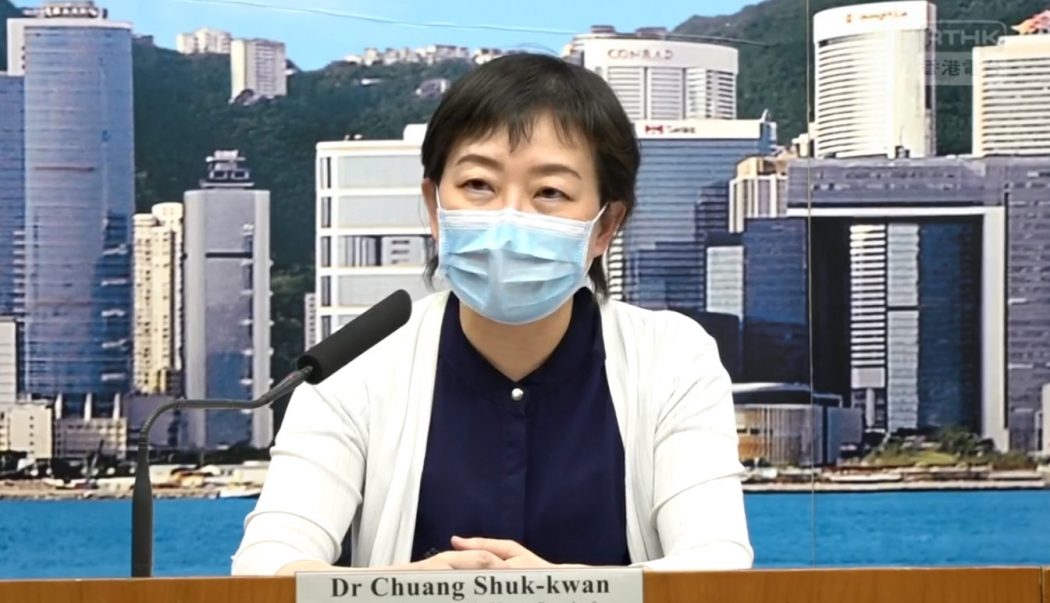
Tuesday’s figure was a slight drop from previous daily infections, but Chuang said the situation remained worrying: “I really do hope that the trend is decreasing, but there is no place for complacency at the moment.”
Reporters asked Chuang about the 2020 Legislative Council Election in September, which may be postponed due to the outbreak, according to local media citing sources. Chuang said the authorities had to monitor the development of the epidemic in the coming seven to 14 days, adding that she “would not care too much” about the election.
Starting on Monday, 22 general out-patient clinics began to distribute sample bottles for Covid-19 testing. The Hospital Authority’s Chief Manager of Patient Safety and Risk Management Sara Ho said that some citizens had taken the bottles because they wanted to get a health certificate for personal reasons. But Ho said bottles were meant for people with symptoms and those from high risk groups, reminding the public that government clinics would not issue a health certificate.
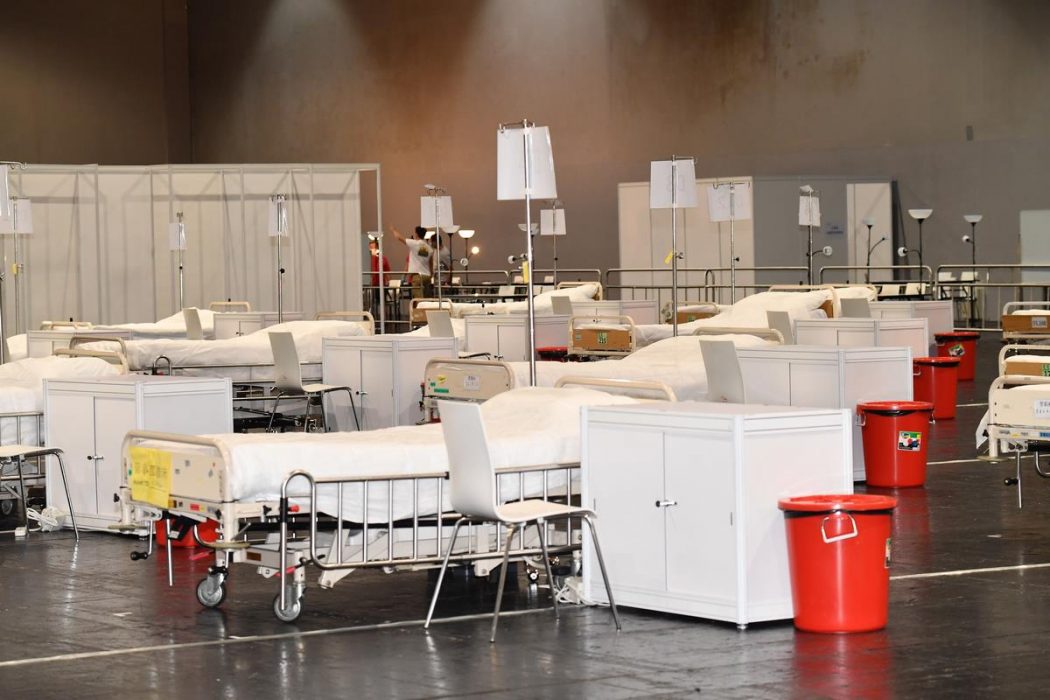
Ho added the authorities had inspected the airport-adjacent AsiaWorld-Expo, which will be transformed into a community treatment centre for patients with mild cases. She said details would be announced later, as the government was still resolving technical and manpower issues.
Support HKFP | Policies & Ethics | Error/typo? | Contact Us | Newsletter | Transparency & Annual Report | Apps
Help safeguard press freedom & keep HKFP free for all readers by supporting our team




